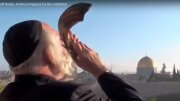With a nation in near moral collapse and a church that is struggling to be salt and light, what should Bible-believing Christians do? How should they respond? Here are some helpful glimpses from Scripture. (Parts one and two can be found here and here.) This series originally ran in 2017 and is more relevant than ever.
- Prepare yourself to defend the truth.
Paul implies that Christians will consistently face “opposition” (2 Timothy 2:25) and that the followers of Jesus must correct that opposition with the truth.
Peter famously says the same thing – believers must always be prepared “to make a defense to everyone who asks you to give an account for the hope that is in you” (1 Peter 3:15).
This preparation – “always being ready” – certainly includes all of the following ideas: (1) studying the Scripture to understand what it says; (2) undergoing some training on how to present biblical truth and how to answer objections (i.e., apologetics); (3) being “prayed up” in advance; and (4) having one’s eyes open for opportunities to defend the truth, so they are not missed.
However, Peter’s familiar exhortation is sandwiched between two verses that add some additional insight into the nature of Christian preparation. In verse 14, the apostle steels the believer for the inevitable resistance and suffering that comes from being salt and light. Unbelievers will attempt to intimidate us into silence, but we are to consider ourselves blessed when we suffer.
Moreover, while our hearts might be troubled by such animosity, the answer is to fix our eyes on Jesus Christ “as Lord” in our hearts and set Him apart as our Master (v. 15). Why would this be necessary? Because it is a simple fact of human nature that, as pressure builds to keep silent, the temptation grows to make something else “Lord.” Perhaps it is the fear of man or the desire for the approval of man. Perhaps we will serve comfort as “Lord” as we seek to preserve our place in the world by keeping our mouths shut. As we unflinchingly call Jesus Christ our Lord and serve Him even in the midst of great spiritual conflict, we can defend the faith.
In v. 16, we find another exhortation from Peter. The Christian who stands for the truth will be slandered; we can count on that happening. But if the Christian will live circumspectly, the attacks won’t stick. We will have confidence because our conscience is clear, and those who slander us “will be put to shame.”
There is only one way for the follower of Christ to be ready for this onslaught – having faith in God and His word. The Psalmist says, “So I will have an answer for him who reproaches me, for I trust in Your word” (Psalm 119:42). Because the Christian has confidence in the word of God as the truth, he or she will be prepared to have a response to those who attack the gospel.
- Pray for boldness.
Whenever Christians stand firmly for biblical truth, they can always expect a backlash. What we do when the backlash begins, however, will often determine whether or not the truth can make further inroads in a culture.
We see this in Acts 4:23-31 after Peter and John are released from prison for preaching the gospel. The church is brought up to speed as to what it is up against, and it’s not insignificant. The Roman Empire is still our enemy? Check. The religious leaders of our own nation still hate us? Check. The clear demonstration of God’s power has not caused the power of hell to slink away into the darkness? Check. Facing such animosity, the church quotes Psalm 2: “Why did the Gentiles rage?” (Acts 4:25).
So the members of the early church pray. They cry out to God, declaring His greatness and power. They quote Scripture, clarifying that what they are battling is spiritual in nature. They ask the Lord to take notice of what the enemies of the church are doing.
Then they ask God for something unexpected: “[G]rant that Your bond-servants may speak Your word with all confidence” (v. 29). I say this is unexpected because I would’ve asked God to smite the rebels and crush the resistance. Even what the church asks for next is understandable – miracles.
But boldness?
Yet this makes perfect sense. Having patience to endure the blowback and then persistence in declaring God’s truth is the Lord’s plan for saving lost souls and changing cultures. Preaching the gospel is the main instrument of power that God has given His people. The only way for it to fail is for the church meekly to lay this power aside when the heat is applied.
In faith, Christians are bold for God; that same faith trusts God to act, once the church has preached.
- Be willing to suffer evil in order to overcome it.
The initial cultural response to Christian faithfulness and boldness is often rage, which is sometimes followed by persecution of the church by those who hate God. This calls for yet more boldness by believers.
Still, Christians have yet another great weapon: they follow in the footsteps of the Lamb of God and absorb the hatred, the slanders, and the blows of their enemy. In this way, they destroy the power of darkness and make room for the mighty work of God.
“Do not be overcome by evil, but overcome evil with good,” says Paul in Romans 12:21.
It is interesting to read such a verse in its context. We should never take our own revenge in paying back our persecutors, either by verbally cursing them (v. 14) or physically responding in kind (v. 19). The reason? We leave judgment and punishment to God. Instead, our response should be kindness and aid. This is how we “overcome evil with good.”
This doesn’t necessarily end the persecution, but one of two things will happen: (1) the patient Christian will be purified and, perhaps, will win back their neighbors and maybe their nation; or (2) the Christian will be crowned with righteousness while the rest of the nation is judged by fire.
Either way, the church has honored God.
- Stand with other Christians who love God.
Too often, Christians divide themselves according to fairly minor categories of interest – styles of worship, cultural customs, dress codes, etc.
Sometimes, too, they are dismissive toward those who differ in terms of ministry emphases. You don’t protest in front of abortion clinics? Shame on you! You waste your time being involved in politics? I guess you don’t care about kingdom business!
We should be careful about such divisions. Can’t we rejoice that some in the body of Christ are convinced that it’s important to shine a light in a dark corner of the culture without demanding that all do it?
Of course, there’s nothing wrong with a Christian stating the case for wider participation in a particular area of ministry, but we shouldn’t divide ourselves over these differences.
As the Psalmist says, “I am a companion of all those who fear You, and of those who keep Your precepts” (Psalm 119:63). That’s what determines who my brothers and sisters are.
After all, there’s plenty of darkness to go around. We need every Christian lighting a lamp – somewhere in the dark.
Editor’s Note: This blog concludes the three-part series. All Scripture verses are from the New American Standard Bible.





